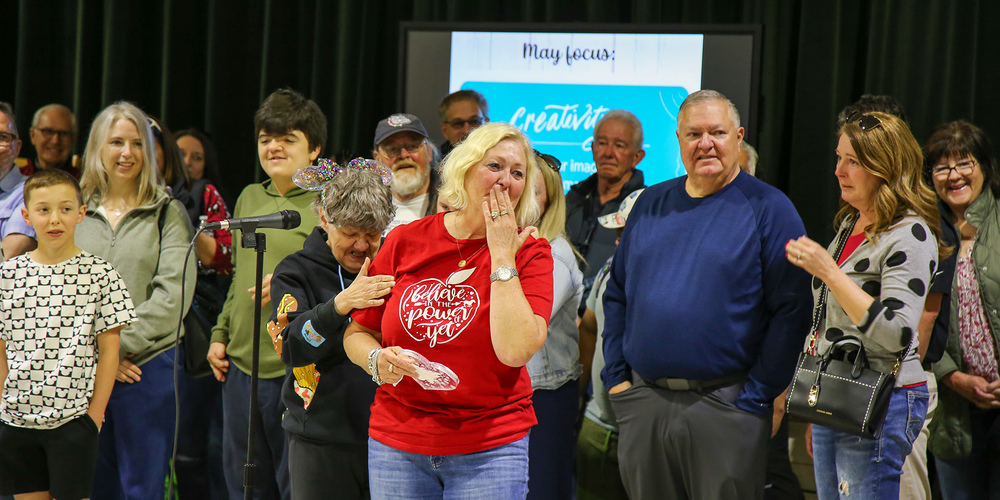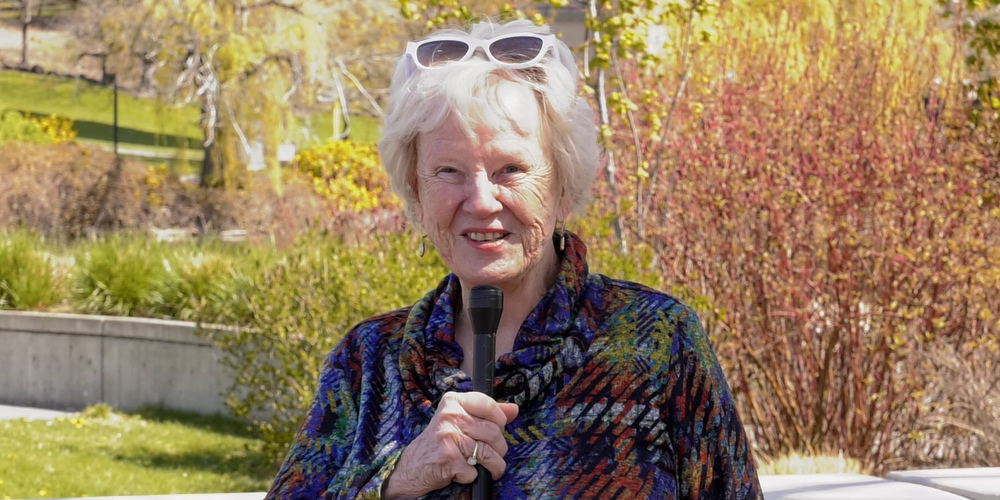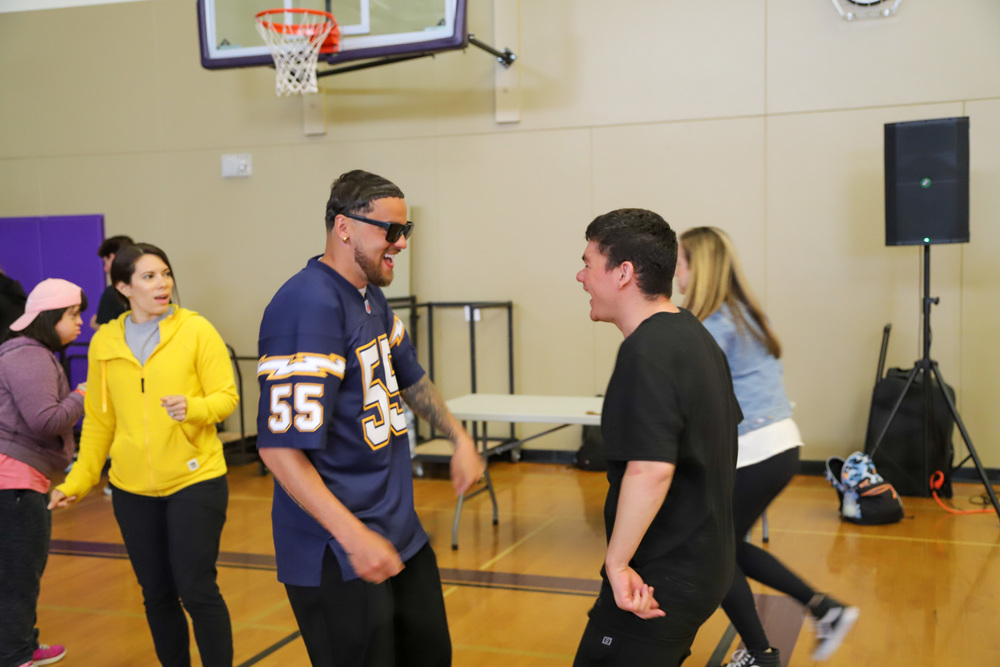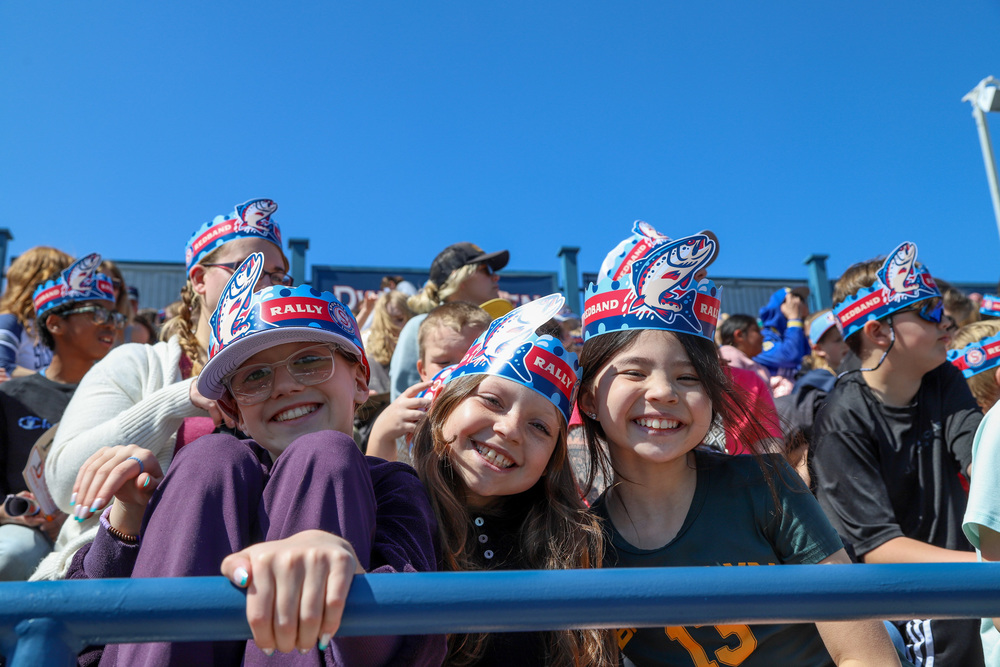
February 20, 2025
On February 20, Spokane Public Schools Superintendent Dr. Adam Swinyard and City of Spokane Parks and Recreation Director Garrett Jones shared a historic partnership proposal reco...

May 9, 2025
During May, we’re interviewing high school students from across Spokane Public Schools in recognition of Asian American, Native Hawaiian, and Pacific Islander (AANHPI) Heritage M...

May 8, 2025
A sunny nature walk in Lincoln Park with Franklin Elementary School science teacher Wes Pitter’s first and second grade students yesterday seemed like the perfect opportunity to ...

May 8, 2025
“There I am! That’s my artwork!” exclaimed Shadle Park High School senior Wyatt Antcliff as he spotted his painting on a wall at the Northwest Museum of Arts & Culture (MAC). T...

May 7, 2025
Last week, special education teacher Stacey Higgins was surprised to see her daughters, Megan and Christina, at a Madison Elementary School assembly. They were there to present th...

May 7, 2025
Across our 58 schools, 45 nurses provide healthcare for nearly 30,000 students every day. They check temperatures and supply Band-Aids, of course, but they also monitor health ca...

May 6, 2025
Nine Spokane Public Schools have been honored by the Washington State Board of Education (SBE) Washington School Recognition Program for their performance during the 2023-2024 sc...

May 6, 2025
For Teacher Appreciation Day, we asked a few friendly folks in downtown Spokane to share how teachers have impacted their lives. We’re grateful for every single teacher in Sp...

May 5, 2025
Since March, the 90+ Project has hosted free after school soccer clinics at 20 SPS elementary schools, introducing “the beautiful game” to students in grades 1-5. “It’s a lot o...

May 5, 2025
Last week, the Rogers High School Leadership Class hosted the 3rd Annual Regional People First Dance for Student First Clubs in Spokane County! With music, dancing, and karaoke,...

May 2, 2025
Three students in Rogers High School ProStart Culinary Program are Baltimore-bound for the National Restaurant Association Educational Foundation National ProStart Invitational co...

May 2, 2025
Outside Lewis and Clark High School before school on Friday mornings, you may see up to one dozen students casting lines on a grassy lawn for the LC Fly Fishing Society. Led by a...

May 1, 2025
During the school year, three individuals are recognized by Spokane Public School each month for their contributions to our schools’ communities. One student, one certificated sta...

April 30, 2025
Last night, Chase Youth Commission recognized our community’s outstanding youth, teens and an adult who are making a difference in our community or making positive choices throug...

April 23, 2025
On Tuesday, 4th graders from 26 Spokane Public Schools were among the 2,710 area students in attendance for the Spokane Indians ' 17-5 victory over the Eugene Emeralds at Avista S...

April 23, 2025
The first people you usually see when entering a school or district building are administrative office staff. They’re front and center, and they’re also making sure things run s...

April 22, 2025
Last night, 171 high school students from 33 schools across the Spokane area were recognized at the 33rd annual Spokane Scholars Foundation banquet, including 33 students from Le...

April 22, 2025
On Monday, April 21, 5th District Rep. Michael Baumgartner stopped by Stevens Elementary School to visit classrooms and field questions from student leaders. “When I was in D.C....

April 21, 2025
Riding the skates has been a lifelong hobby of Frances Scott Elementary School fitness and health teacher Kiara Conklin-Davis – she even met her boyfriend Sky at a skate night! T...

April 17, 2025
“There’s something about a spotlight and the magic of this show … it just gets them hooked.” About 50 students ranging from elementary to high school grades are participating in...
